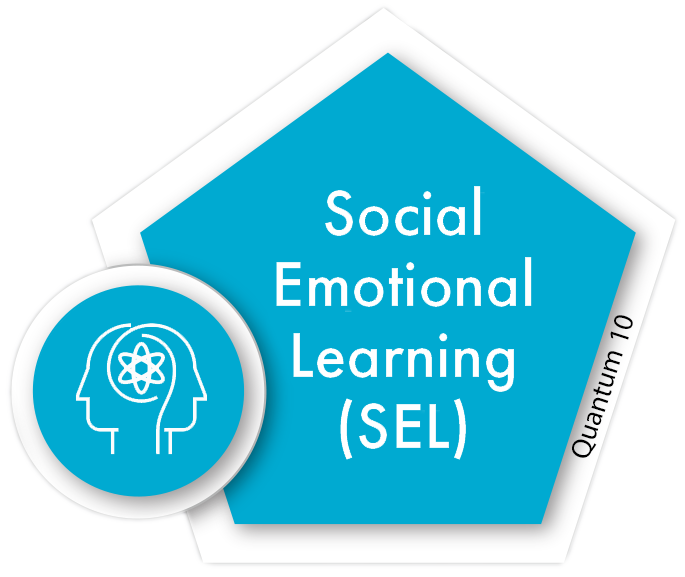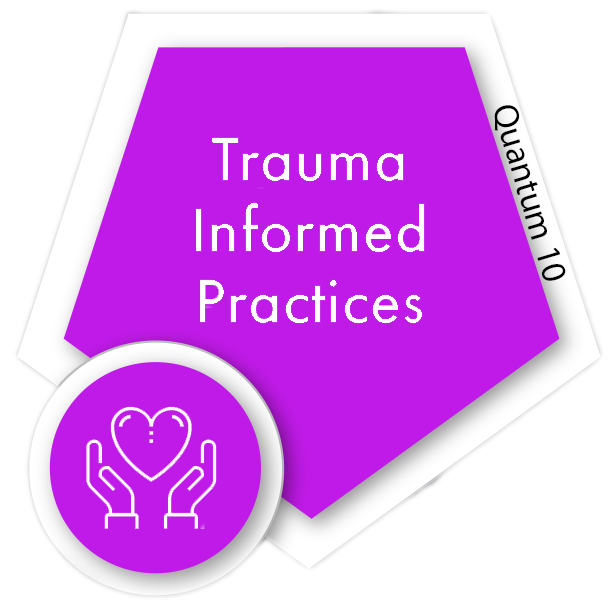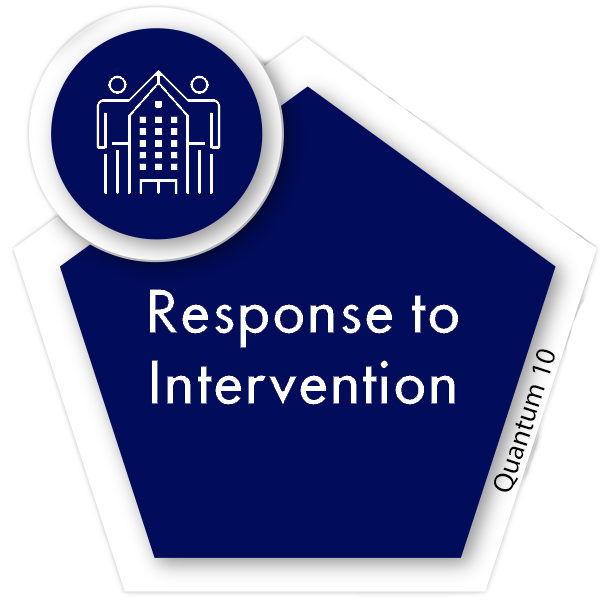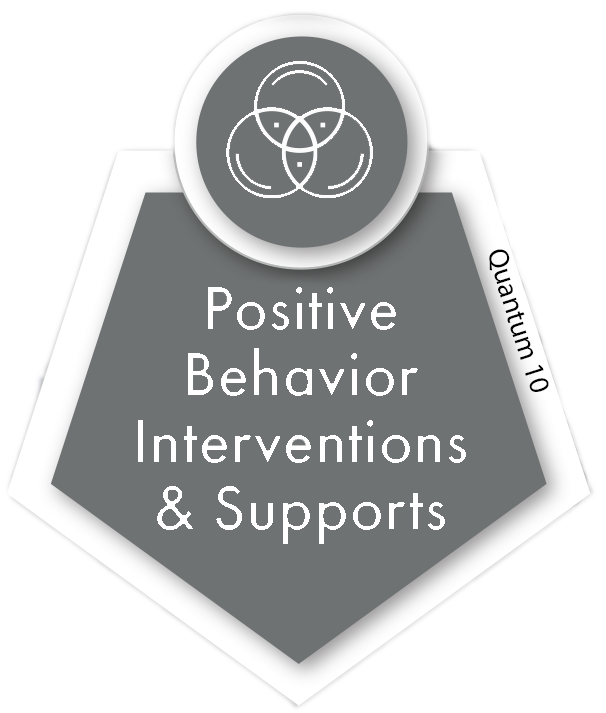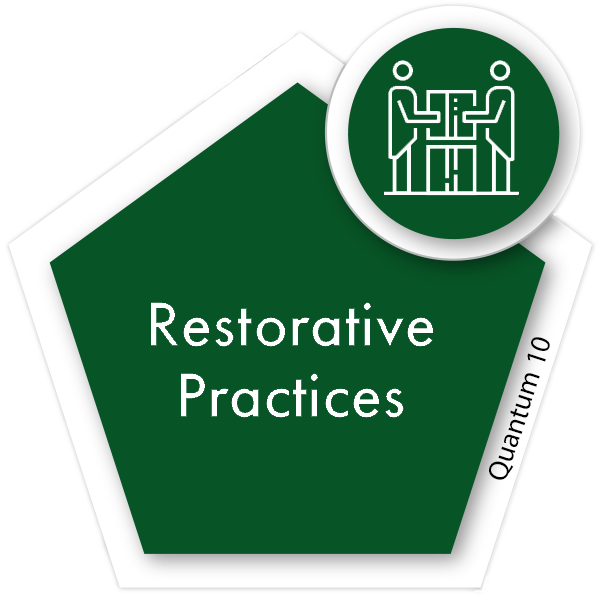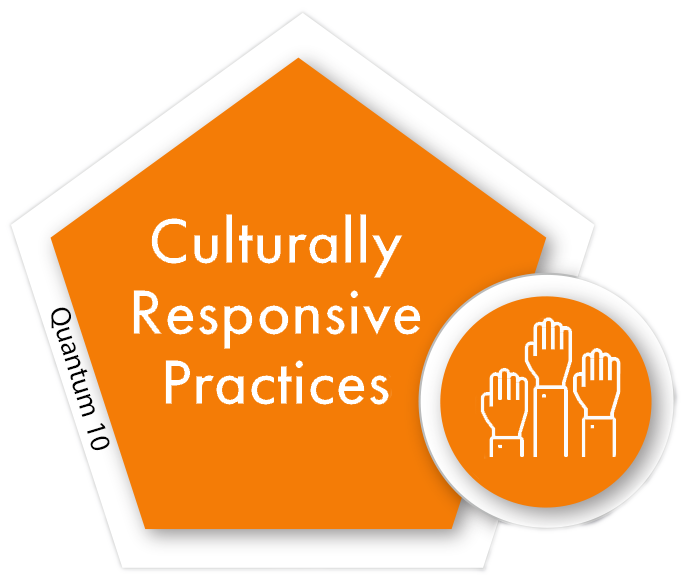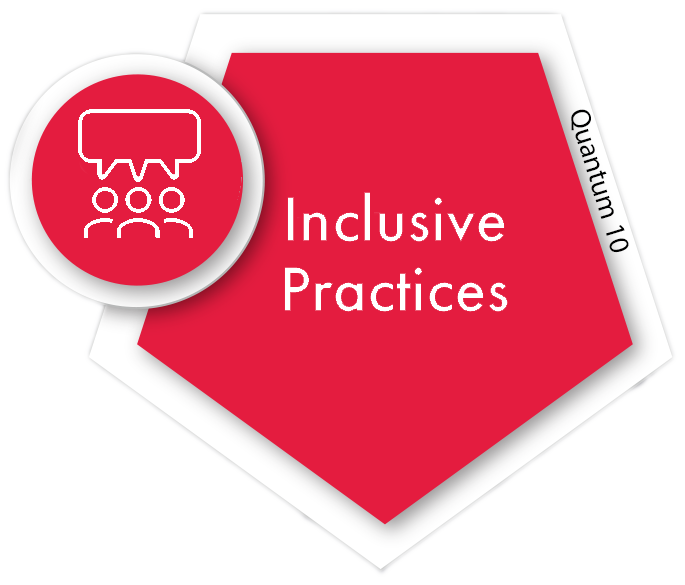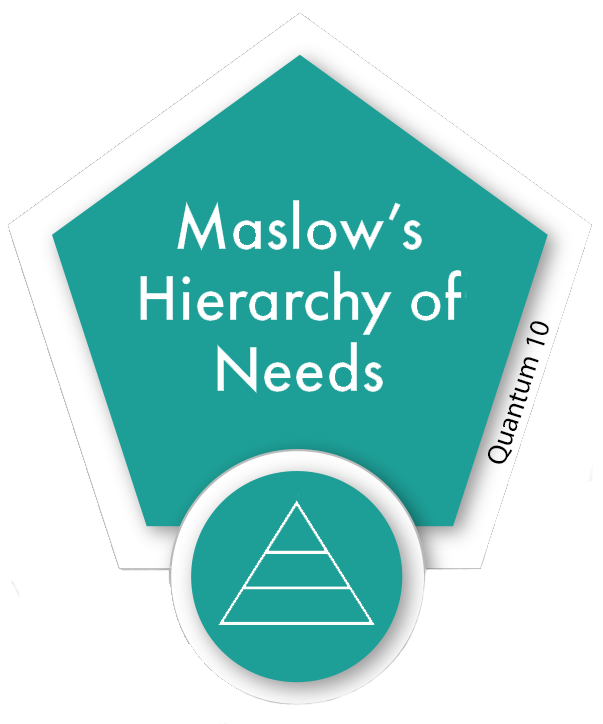Trauma Informed Practices
The Quantum 10 Elements
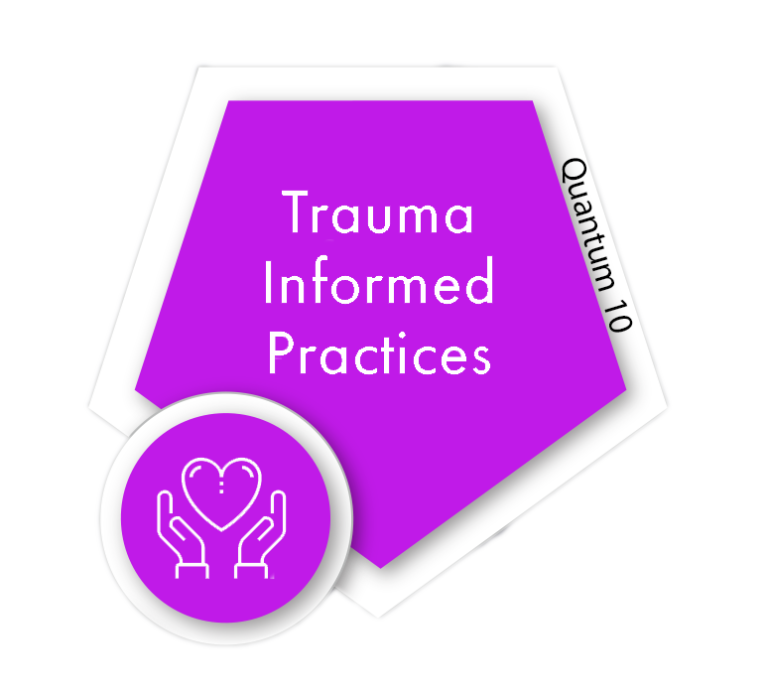
Trauma-Informed Practice is a strengths-based framework grounded in an understanding of and responsiveness to the impact of trauma. Trauma Informed Practices:
- Emphasizes physical, psychological, and emotional safety for everyone
- Creates opportunities for survivors to rebuild a sense of control and empowerment (Hopper et al., 2010)
- Influences educators approach to interactions with people
- Shift in philosophy when assessing situations. Ask “what happened to you?” not “what’s wrong with you?”
- Self-Care is important to extend care to others
Click the links below to learn more about how you can understand and implement Trauma-Informed Practices:
Trauma-Informed Design in the Classroom by Frey, Fisher, and Smith
WEBINAR: Trauma-informed Teaching & Learning (TITL) Online by Columbia University School of Social Work
Trauma-Sensitive Practices During the COVID-19 Pandemic by Second Step
Trauma-Informed Practices in Schools and Beyond by Aperture Education
Tali Raviv: The Effect Trauma-Informed Educators Can Have on Student’s Lives by CEC
Trauma-Informed Educators Network Podcast by Matthew Portal
A Trauma-Informed Approach to Teaching the Colonization of the Americas by Suzanne Methot
Trauma-Informed Practices in Schools Across Two Decades: An Interdisciplinary Review of Research by M. Shelley Thomas, Shantel Crosby, Judi Vanderhaar
Trauma Types by The National Child Traumatic Stress Network
Navigating the Impact of Childhood Trauma into Adulthood by Sparlin Mental Health
Navigating the Impacts of Childhood Trauma into Adulthood: Part II by Sparlin Mental Health
Celebrate Teacher Appreciation Week: Free Stuff! Deals & Discounts for Teachers (Teach for America) by The TFA Editorial Team
Better Hearing and Speech Month 2021 by American Speech-Language-Hearing Association (ASHA)

